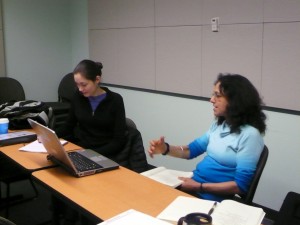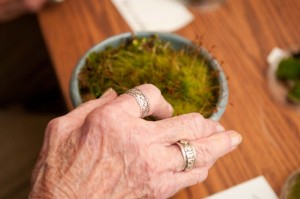This note is an announcement/reminder for a workshop on ecology outreach to non-traditional public audience at the upcoming ESA meeting.
Entitled: Got Broader Impacts? How the Research Ambassador Program Can Turn Outreach from Burden to Benefit, this workshop will help guide ecologists to create and implement useful and creative broader impacts in an efficient ways. We will draw upon successful models whose audiences include faith-based communities, legislators, artists, urban youth, and incarcerated men and women.
Workshop participants will be asked to complete a short “outreach profile”, which will help to focus the outreach scenarios we design to maximize the appropriateness of the audience and the mode of communication. We anticipate that each attendee will leave the Workshop with new and useful ideas for ways to bring their ecological research to public audiences that go well beyond academia.
This workshop is part of the new “Research Ambassador Program”, which has been funded by a research grant from the Ecosystems Program at the National Science Foundation. Workshop attendees will become eligible for becoming a “Research Ambassador”, which provides access to further outreach training, resources, and evalution materials.
Because this Workshop does not require signing up in advance, we would appreciate your sending us a note if you intend to attend so that we may better plan our activities.
Below is the Workshop description. The workshop will take place on Monday, Aug. 2, from 8-10 pm, in 414 David Lawrence Convention Center.
Monday, August 2, 2010: 8:00 PM-10:00 PM
WK 17 – Got Broader Impacts? How the Research Ambassador Program Can Turn Outreach from Burden to Benefit
With the increasing gulf between humans and nature, and pressing global environmental issues, high-level science administrators are calling for scientists to participate in the dissemination of their work to non-scientific audiences. However, little training exists for scientists to be effective, efficient communicators. The academic system has few rewards for outreach by scientists, and can even actively discourage them. However, funding sources such as National Science Foundation (NSF) are increasingly demanding that such work be done. In 2010, the Ecosystems Program of the NSF made an award to create the Research Ambassador Program. Our objectives are to recruit, train, and provide assessment tools for ecologists who wish to present their work to non-scientific audiences, particularly to audiences with little access to nature, or for whom science is not a part of their regular interests. This workshop draws on five years of successful science outreach to non-traditional audiences. In our session, we will: (1) articulate the obstacles and rewards that scientists face when carrying out research outreach; and 2) present successful case studies for such audiences as incarcerated men and women, faith-based communities, and urban youth. Then, each participant will describe his/her own research topic, and we will collectively brainstorm potential audiences and modes of communication by which outreach can be implemented. Finally, we will present models for materials that evaluate the audience’s and the scientists’ shifts in knowledge of content, attitudes, and behaviors.
Organizer: Nalini Nadkarni, The Evergreen State College
414, David L Lawrence Convention Center

